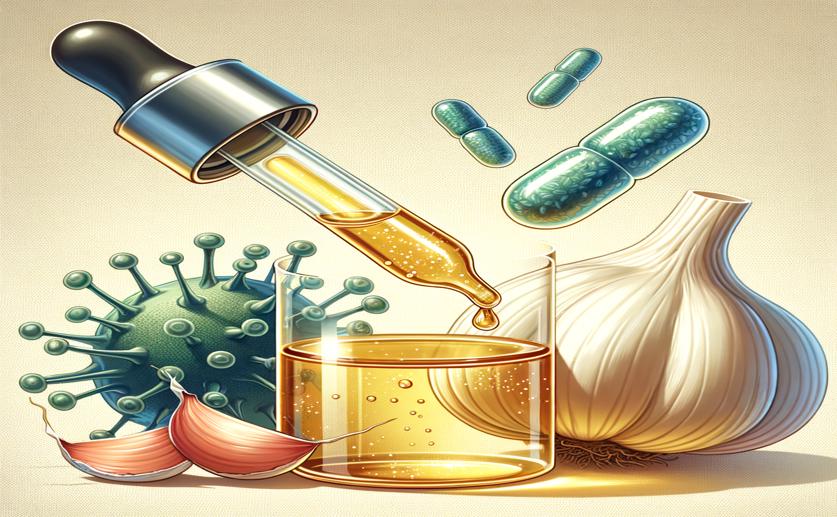
Studying Garlic Extracts for Fighting Antibiotic-Resistant Bacteria
Greg Howard
2nd September, 2024

Image Source: Natural Science News, 2024
Key Findings
- Researchers at Mahidol University studied the antibacterial potential of crude peptide extracts from 27 Thai plants
- Peptides from garlic and shallot were particularly effective, inhibiting bacterial growth at low concentrations
- These peptides remained stable and active at -20°C for over a month, indicating their durability for future use
References
Main Study
1) Exploring the antimicrobial potential of crude peptide extracts from Allium sativum and Allium oschaninii against antibiotic-resistant bacterial strains.
Published 29th August, 2024
https://doi.org/10.1080/13880209.2024.2395517
Related Studies
2) Antibacterial Properties of Organosulfur Compounds of Garlic (Allium sativum).
3) Instability Challenges and Stabilization Strategies of Pharmaceutical Proteins.
4) Antimicrobial peptides.



 26th August, 2024 | Jim Crocker
26th August, 2024 | Jim Crocker